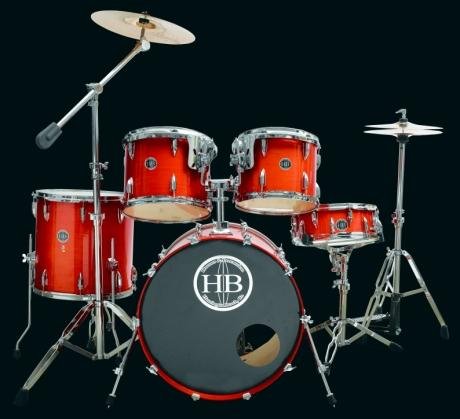Yahoo! News Search Results for guitar
The two need clearly distinguishing.
This in itself is not a negative thing, and should indeed be encouraged from time to time, as it's important to extract some creative ideas externally. However, too many guitarists take it too far, sacrificing any personal creative development, bent on becoming the next Steve Vai or Kirk Hammett.
Once you start dropping yourself in a little more at the deep end, you start to pick up the theory almost automatically, in your own way. Without being told, you begin to see relationships between certain strings and fret positions on your guitar. You begin to expand out of your "boxed in" scales because you want more breathing space to apply your own creativity. You finally begin to realise that there is no "right" or "wrong" answer when it comes to creative guitar writing and playing... there is only your expression Vs someone else's expression.
These are your foundations. As raw techniques and theory, they don't teach you WHAT to play - they simply give you the foundations on which to build your own musical expression. Master this concept, and you will never want to "parrot" your guitar heroes again. Who knows, one day, people will want to replicate you... and hopefully you'll give them some sound advice ;)
There are two types of learning when it comes to guitar:
1) Being told what to play and how to play it
When one listens to a track, or reads a tab, they are essentially being told what to play. There is potentially no creativity involved in this process whatsoever, as the guitarist merely "copies" what they see and hear, including the actual techniques used (bends, hammer ons, slides etc.). In fact, a guitarist is often congratulated all the more if they can replicate their favourite songs as close to the original as possible.
Now, I'm not exactly an inverted snob when it comes to guitar, but I do strongly believe in unique talent, and that we all have it in us, somewhere.
It's also about knowing how to create and build chords and scale patterns based around the type of phrasing you want to express. Specifics.
2) Knowing what you CAN play, and how you CAN play it
Spend more time getting to know and exploring your guitar's fretboard. Get to know the countless options you have to make your scales sound more alive and dynamic. Get to know how chords and scales work together so you'll never have to blindly guess where to plonk your fingers.
In this fast paced modern world, people rarely have time to make themselves a proper meal, let alone delve into a 500 page book on guitar theory. It's understandable, then, that the majority of beginner guitarists turn to the tab sites and jamming along to their favourite bands as their quick-fix source of learning. People are naturally comfortable with what they know and love.
It's time to be honest - with enough time and practice, ANYONE can learn to merely replicate. If the score is written down, and you have an ear for music, you can be your guitar heroes, minus their individual style (we'll get onto this in a minute). However, if you're aim is purely to replicate as accurately as possible, where do you fit into the creative expression of the music?
Knowing what you CAN play, and how you CAN play it is about having knowledge of the specific playing techniques in their raw form, so then you can decide when and how to incorporate a certain type of bend, pull-off, vibrato, tapping phrase etc.
Guitar - Overcoming Parrot-Fashion Learning
You see, if you shy away from creating your own music, the part of the brain associated with this cognitive process becomes redundant, and it becomes more and more difficult to really apply that creative instinct as the ideas form in your head.
So, instead of "I need to bend X string up a whole step", it'll be "what options do I have to link this note to the next note in the sequence" - you may choose a bend, or you may feel the need to express it in a completely different way! Let you make the creative decisions based on the raw techniques you're armed with!
People may say "I just want to learn a song so I have something to play on guitar that everyone knows" - nothing wrong with that at all, but do not by any means let that take up the majority of your playing time.
At the end of the day, in my opinion, it is far more rewarding to spend a week really getting to grips with the "hammer-on" technique, rather than spending two weeks learning X guitar solo from X song. If you arm yourself with enough knowledge of all the playing techniques and foundation theory out there, you will be ready to build solos and phrases how you want... Naturally, without any other guide to obstruct or distract you, you'll be free to explore the raw techniques you've learned in the context of your own unique creativity.




